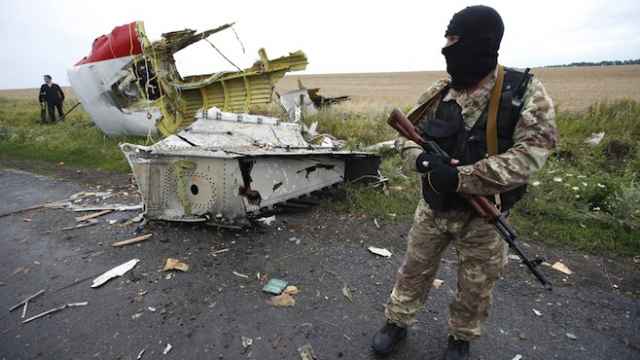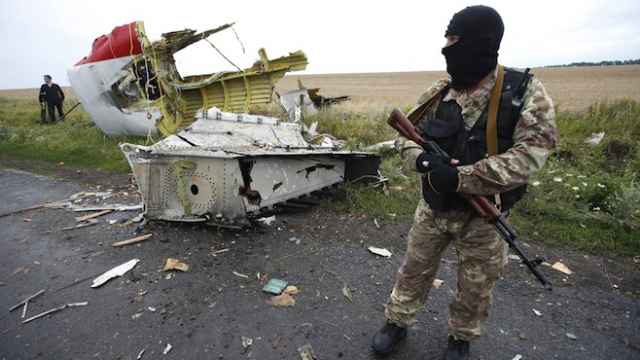AMSTERDAM — The five countries investigating the downing of a Malaysian airliner over Ukraine a year ago are considering setting up an independent international tribunal after Russia vetoed attempts to establish a UN-backed court to prosecute suspects.
Russia deployed its permanent member's veto in the United Nations Security Council on Wednesday, blocking a move to establish an international court.
Malaysia Airlines Flight MH17 was shot down in July 2014 with 298 passengers on board, two-thirds of them Dutch. It crashed in Ukrainian territory held by Russian-backed separatist forces.
Ukraine and many Western countries believe the plane was downed by Moscow-backed separatists who had mistaken it for a Ukrainian military aircraft and fired a Russian-made missile at it. No suspects have yet been named.
"The Russian veto is convincing proof of the Russian terrorists' guilt and of a direct link between the Kremlin and the murder of innocent people," Ukrainian Prime Minister Arseniy Yatsenyuk said on Facebook.
Kremlin spokesman Dmitry Peskov dismissed accusations that Russia had any role in the downing of the plane as "completely absurd and inappropriate."
Malaysia, the Netherlands, Australia, Belgium and Ukraine are now exploring alternative options, including trials in international and national courts.
"One option is to have an international tribunal backed by the five countries," said a spokesperson for the Dutch Foreign Ministry. "Another option being discussed is to have a court established by the UN General Assembly."
A third option would be a trial in national courts of one of the four countries that lost large numbers of citizens in the crash. The discussions were taking place in national capitals and at the United Nations, the spokesperson said.
A UN-backed court could be given the power to issue arrest warrants valid in all countries, meaning a country that refused to hand over a suspect could be found in breach of the law. A court backed by a limited group of countries would be unlikely to have the same power.
The downing of Flight MH17 became a milestone in the conflict in Ukraine where more than 6,500 people were killed in 15 months of fighting. The incident triggered more sanctions against Russia from the West, which accuses Moscow of driving the rebellion there. Russia denies this.
A fragile cease-fire has been in place since February, although small-scale clashes continue almost daily.
Peskov said the ongoing investigation should be completed and suspects named before deciding on how to bring them to justice. He dodged a question on whether Russia would agree to an international tribunal after the investigation ends.
The Dutch prime minister said he was disappointed after Russia was the only country in the 15-member Security Council to vote against the proposal. Three countries abstained.
"A UN tribunal would have ensured that there was the broadest possible support for the prosecution process," he said, adding that the five countries would now discuss alternatives on both national and international levels.
An ad hoc Scottish court was set up in the Netherlands to try the perpetrators of the bombing of Pan Am Flight 103 over Lockerbie, Scotland in 1988. Libya, which harbored the suspects, was only prepared to hand them over to a court based outside Britain.
A Message from The Moscow Times:
Dear readers,
We are facing unprecedented challenges. Russia's Prosecutor General's Office has designated The Moscow Times as an "undesirable" organization, criminalizing our work and putting our staff at risk of prosecution. This follows our earlier unjust labeling as a "foreign agent."
These actions are direct attempts to silence independent journalism in Russia. The authorities claim our work "discredits the decisions of the Russian leadership." We see things differently: we strive to provide accurate, unbiased reporting on Russia.
We, the journalists of The Moscow Times, refuse to be silenced. But to continue our work, we need your help.
Your support, no matter how small, makes a world of difference. If you can, please support us monthly starting from just $2. It's quick to set up, and every contribution makes a significant impact.
By supporting The Moscow Times, you're defending open, independent journalism in the face of repression. Thank you for standing with us.
Remind me later.





